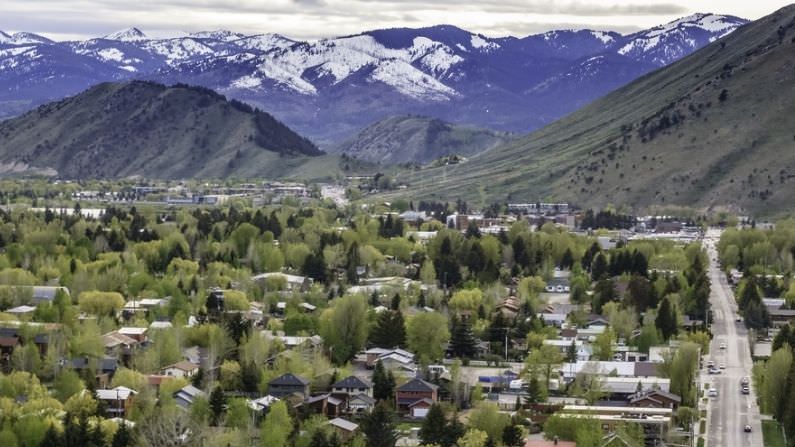Total real estate sales volume in Jackson Hole is expected to eclipse $3 billion this year. That’s an astronomical number never before seen in the Valley. And while that’s good in part for the local economy, Jackson Vice Mayor Arne Jorgensen said last week that longtime residents often can’t afford to live in the area anymore, and that they’re being pushed out of Teton County by out-of-state interests.
“They’re outbidding, whether it’s a business owner or a commercial property or residential,” he said. “And that amount of interest and that amount of activity in our real estate market, we just can’t compete against.”
Jorgensen testified Wednesday before the Wyoming State Legislature’s Joint Revenue Committee in favor of an optional real estate transfer tax. A bill is now on the table that would allow individual counties to vote on whether or not to impose a 1% levy on local sales based on the property’s value. Jorgensen said that redistribution of wealth–potentially a $25 million influx of cash per year–would allow Jackson Hole to build programs dedicated to keeping workers in the valley.
“Real estate is our asset. Real estate is our coal,” he said. “And this is a way for us to be part of the state in terms of revenue and to reduce the time that we’re coming to the state and asking for assistance.”
There are some specifics that need to be ironed out during the lawmaking process. For example, the tax would only kick in for property sales over a certain amount, currently set at $1.5 million. Other exemptions are also on the table. But the state’s revenue committee did decide by an 8-4 margin to move the most recent iteration of the bill forward, sponsoring a tax of this nature for the first time in Wyoming’s history.
Still, the bill faces a long, difficult road to winning support from two-thirds of the state house and senate before finally becoming law. Plenty of lawmakers and business interests oppose a real estate transfer tax, including Lauri Urbigkit, who testified Wednesday on behalf of the Wyoming Association of Realtors.
“A lot of the real estate property that’s purchased is purchased as an investment, truly,” she said. “So putting a sales tax on those investments is not equitable when we do not put a sales tax on stocks or bonds or those kinds of investments when people sell those.”
Other skeptics question whether the money raised for towns and counties would even help solve housing issues, rather than just keeping those funds in the private sector. There have also been arguments made that this is an example of the state trying to solve a Teton County problem with laws that could hurt other areas of Wyoming. However, Dale Steenbergen, President and CEO of the Greater Cheyenne Chamber of Commerce, said he’s in favor of simply letting actual residents of these communities make the decision themselves.
“Why in the world would we not want a local government to have a tool to send to their people for a vote of their people? And their people say we want to raise our taxes so we can live in a better place?,” Steenbergen said.
Other resort communities, particularly in Colorado, already raise millions through similar taxes. The Teton County Board of Realtors has not yet taken a position on the bill, which now moves onto the full state legislative session early next year.






